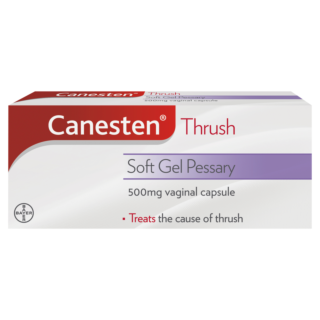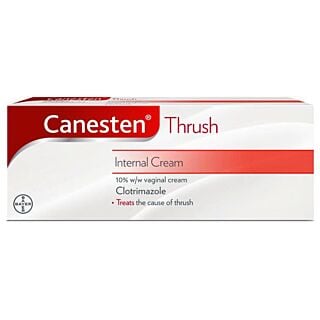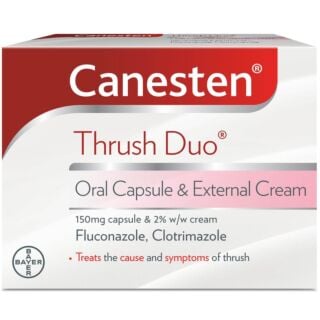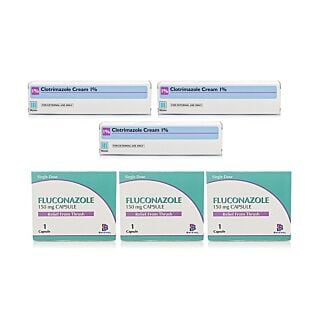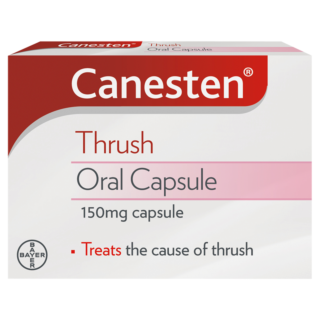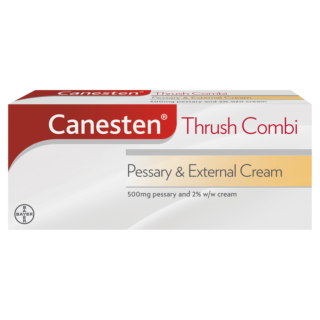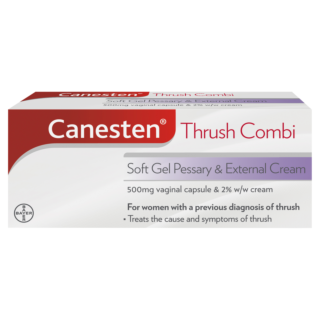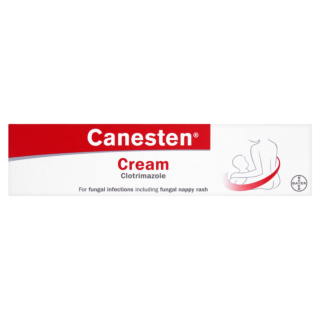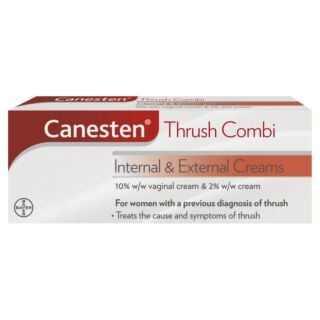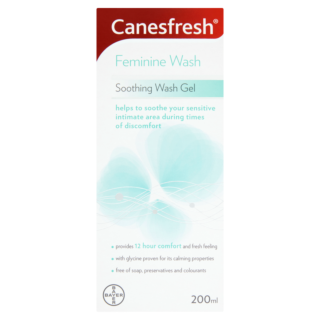How to beat thrush this summer

Could there be anything more irritating than a bout of thrush disrupting your summer plans? As the summer heat rises, unfortunately, so do women’s chances of suffering from vaginal thrush.
Luckily, there are some preventative measures we can all take to reduce the chances of us falling victim to those dreaded yeast infections. There’s also a range of treatments available that will help you to tackle the infection quickly and easily, so you can beat the itch and get back to enjoying your summer.
What is thrush?
Thrush is a yeast infection caused by the overgrowth of a fungus called Candida. Whilst it can sometimes be brought on through sexual activity, thrush isn’t a sexually transmitted infection and it can affect anyone.
Thrush can affect both men and women in the genitals, mouth and other areas of skin, but vaginal thrush is one of the most prevalent complaints. The infection is extremely common and most women - up to three out of four of us - will likely experience it at some point.
Some women - particularly those with high blood sugar or a poor immune system - will suffer from recurrent thrush that can be difficult to keep at bay. Vaginal thrush can be very unpleasant and uncomfortable, but for most women, it’s very easy to treat with over-the-counter medication and it usually isn’t anything to worry about.
What are the symptoms of vaginal thrush?
If you’ve never had a vaginal infection before, it can be difficult to identify what the exact problem is. That’s why you should always seek medical advice if you’re not sure which infection you have - you could be mistaking thrush with bacterial vaginosis or a sexually transmitted infection.
The typical symptoms of vaginal thrush include:
- Itching and soreness around the entrance of the vagina (labia)
- Odourless vaginal discharge that can be thick and white or thin and watery
- A stinging sensation when urinating
- Pain during sex
Sometimes, thrush can cause the skin around the vagina to be red and swollen. There may also be sores on the skin, but this is usually a sign of genital herpes rather than a yeast infection.
If you experience any symptoms that you’re unsure about, you can visit your GP or a sexual health clinic for a professional diagnosis.

Prevention
Fungal yeast infections like thrush thrive in areas that are moist and dark. That’s why you’re more likely to get vaginal thrush during the summer - the weather will be humid and you’ll be sweating more than usual.
Thankfully, there are several easy ways to lower your chances of developing thrush.
Choose the right underwear
Whilst that pretty lace number might look great on you, you might need to reconsider what you’re wearing down there. Wearing synthetic, dyed materials can cause unwanted irritation.
Fabrics like nylon and spandex don’t allow the area to breathe, meaning heat and moisture will get trapped and create the perfect environment for yeast to grow. Opt for white, cotton underwear that isn’t too tight - this will be the most breathable option during the warm summer months.
Make sure to change your underwear daily and wash your garments in hot water to kill any fungus or bacteria.
Stay dry
If you’re lucky enough to be enjoying your summer by the poolside this year, you might want to think twice about lounging in your swimwear. Keeping your vaginal area dry is extremely important for preventing thrush - that’s why you shouldn’t be hanging around in wet swimwear for too long.
After you’ve been in the water - whether that be a swimming pool, hot tub or the ocean - make sure to change out of your bikini or swimming costume, shower, and dry yourself thoroughly before getting dressed into fresh clothes. After all, could there be anything worse than a yeast infection ruining your holiday?
Avoid tight-fitting clothes
Even if you’re happy wearing jeans in warm weather, your vagina probably won’t appreciate it! Wearing tight-fitted clothing like jeans, tights or leggings won’t allow your vaginal area to breathe and you’ll end up sweating more than you should.
Instead, opt for skirts and dresses or loose trousers in a light, breathable fabric like linen or cotton.
Practice proper hygiene
When it comes to feminine hygiene, you need to keep it as simple as possible. Your vagina will naturally clean itself, so you don’t need to be using any harsh soaps that could alter your natural balance down there.
You should also try to avoid taking baths with bubble bath or bath salts. Washing with water, and an emollient if necessary, is enough to keep the area clean without causing any harm to your delicate pH.

Treatment
Sometimes, thrush will occur despite our best efforts to prevent it. Certain unavoidable factors can increase your risk of infection, including pregnancy, diabetes, antibiotic use or a weakened immune system.
Thankfully, there are a lot of treatment options available that should have you feeling better in no time. Always speak to your doctor or pharmacist before taking any medicine to see if it’s right for you, especially if you have any underlying health conditions or you are taking any other medicines, including those obtained without a prescription.
Tablets or capsules
One of the most popular ways to treat thrush is with fluconazole.
Fluconazole is an antifungal medicine that will usually treat thrush within a week after just one tablet or capsule. It works by killing the fungus that causes the infection and stopping it from being able to reproduce.
Pessary
Another option is a pessary - a tablet that you insert into your vagina containing the active ingredient clotrimazole. Clotrimazole is an antifungal agent that works directly inside the vagina to kill the fungus that is causing the infection.
Clotrimazole pessaries should improve your symptoms within a week. You should not use a pessary if you are on your period, as it can make the medication less effective.
Similarly, you should avoid using tampons, douches, spermicides or any other vaginal products while you are using this medication.
Creams & washes
Creams and washes can be used alongside a tablet/capsule or pessary to help manage your symptoms. Some creams can be inserted into the vagina using an applicator and some can be used externally to help relieve itching.
You’ll often find thrush treatments that combine a pessary or tablet/capsule with a cream - this combination will allow your infection to heal properly while relieving your symptoms in the process.

Hopefully, our simple tips will help you to prevent a nasty case of thrush this summer.
That said, there’s nothing to worry or be embarrassed about if you do come down with a yeast infection - they’re extremely common and you certainly won’t be the only one!

